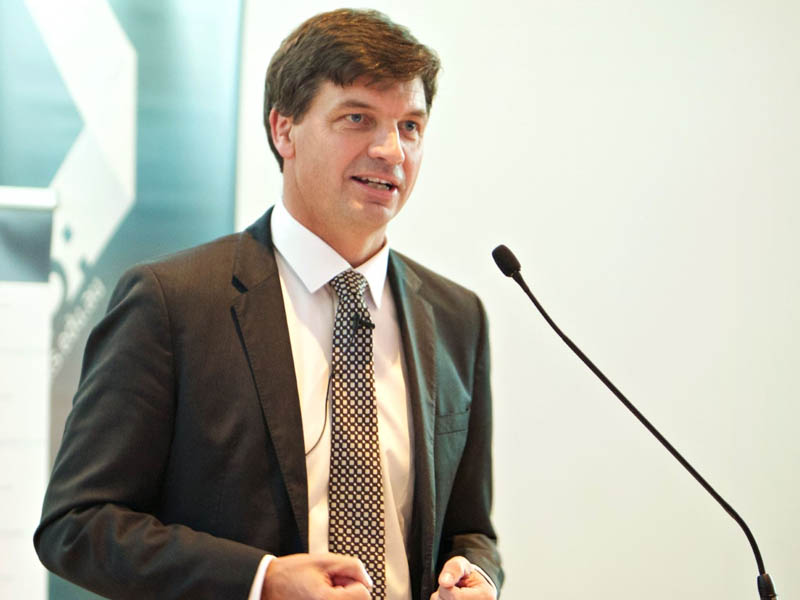Australia looks like throwing its lot in with the UK-originated Hypercat Alliance as a technology standard for the Internet of Things to support the development of smart cities.
Hypercat is both an alliance – it has more than 1,000 industry members – and a standard that enables free communication of data from any connected sensor or device being used to monitor an environment.
Those sensors are increasingly being used by smart cities to support decision making and improve city services: They are monitoring everything from air quality and energy usage to traffic flows and asset utilisation.

The Hypercat standard aims to underpin the interoperability of the sensors and the data, so that that data can be used by different systems. It enables data to more easily be plugged into different projects.
Hypercat was set up in the UK three years ago with UK government support. According to British Consul General Nick McInnes, the launch this week of Hypercat Australia represented an Anglo-Australian collaboration in smart cities and IoT.
Certainly Australia’s Assistant Minister for Digital Transformation and Cities Angus Taylor is open to the idea in drawing on the UK experience in driving his “City Deals” program. And he’s interested in possibly working with the City of Manchester, where the UK government has mandated Hypercat standards for its own ‘city deals’ program.
Under ‘City Deals’, the government will run projects in Townsville, Launceston and Western Sydney. The program aims to align the resources and interests of local councils with business and NGOs – the non-profit organisations – to solve local problems.
Mr Taylor has a $50 million fund to underwrite smart city projects at a local level. His office has been holding roundtables seeking input into how the program should be designed. Broadly it aims to create a portfolio of smallish local projects that in combination can make a big difference – and then to roll-out those successful programs elsewhere in Australia.
Speaking at a Hypercat launch roundtable hosted by KPMG, Mr Taylor said: “We are looking for, in particular, collaborations between local councils and the private sector and NGO’s – the not-for-profits.”
“We are really looking for portfolio set of exemplars which in combination can help reshape our cities,” he said.
Data is at the heart of much of this work. And he wants them focused on real-life issues. “My view on this is that we’ve got to solve real problems,” Mr Taylor said.
“If we get a few quick wins, where we are solving problems that people struggle with in their everyday lives, those people will look at that project and want more where that came from,” he said.
That’s making a difference to traffic problems, or parking problems, or dramatically improving road maintenance.
Meanwhile, Hypercat founder and director Justin Anderson said the real value is unlocked in such local projects when each is interoperable.
“We are going to be seeing data coming out of cities at an ever increasing rate, and interoperability is the key to making sure you don’t end up with these siloed solutions,” Mr Anderson told the roundtable.
“Rather, you end up with systems that can benefit from being able to use data from different places and to combine them. That provides a very fertile environment where you can start to innovate with new ideas that sit on top of existing platform.”
KPMG’s national IoT leader told the roundtable Australia could greatly benefit from a leadership role building a data-driven economy, of which smart cities concepts were a key platform.
“The launch of Hypercat in Australia aims to unlock the benefits of Smart Cities by creating an interoperable IoT ecosystem that gives confidence to cities and local government,” Mr Hogarth-Scott said. “More importantly, if we can play a role in fostering a global standard we can unlock the power of the Internet of Things for everybody.”
Meanwhile, Angus Taylor has announced measures the Commonwealth is taking to tackle a shortage of data skills within the public service through a set of new training initiatives.
The Australian Public Service (APS) Data Skills and Capability Framework will include short term job placements with data specialists, university courses, training partnerships and a data literacy program, to improve data skills and capability across the APS.
Mr Taylor said upskilling workers would result in smarter policy development, better service delivery and more efficient program management.
“It is important – both in government and in non-government sectors – that we remain committed to improving the data skills and capability of our workforce. Data skills are critical for developing evidence-based policy, which is so important in improving the lives of Australians,” he said.
“One of the training initiatives will be a Data Fellowship, to place nominated employees within the CSIRO’s Data 61 team or with select private sector organisations to help the APS maintain world-leading capabilities.”
Do you know more? Contact James Riley via Email.

